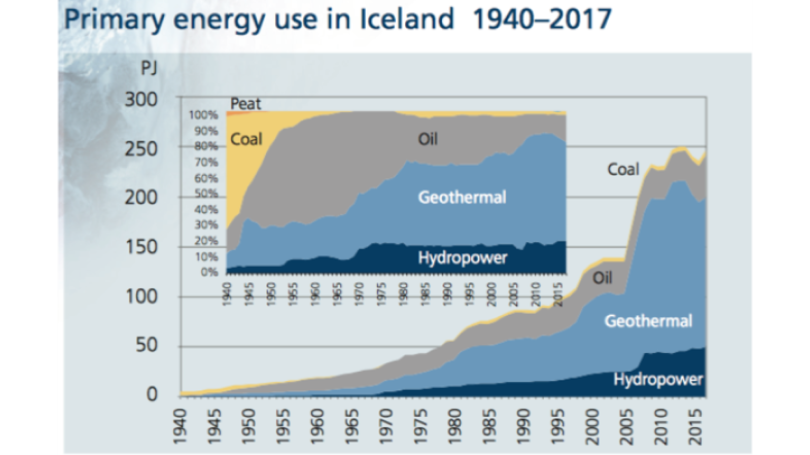
- About
- Education
- Research
- Thought Leadership
- Engagement
- News & Events
Back to Top Nav
Back to Top Nav
Back to Top Nav
Back to Top Nav
Back to Top Nav
On March 28th, the Dartmouth Energy Collaborative (DEC) hosted its first bi-weekly lunch of the spring term. The guest speaker, Brynhildur Davíðsdóttir, is a Professor of Environment and Natural Resources at the University of Iceland and a leading researcher on Iceland’s on-going transition to carbon neutrality. Iceland is committed to carbon neutrality by 2040, which it will achieve by reducing CO2 emissions and by improving carbon sequestration. Additionally, Iceland aims to produce 100% of its energy domestically by the same year. Davíðsdóttir attributes optimism for achieving these ambitious goals to Iceland’s access to geothermal energy and its commitment to sustainability.
Professor Davíðsdóttir and her colleagues have been developing system dynamic models for the past six years with the hopes that their program and analyses can help inform policy makers on the most efficient and cost effective paths of energy transition. In her remarks, Davíðsdóttir highlighted Iceland’s past energy transitions from coal and oil to geothermal energy. These energy transitions were successful partly because of market dynamics (oil shocks in 1973 helped garner support for energy independence) and because of Iceland’s access to alternative energy sources. Despite the widespread use of renewable energy across Iceland (81% of the country’s energy use comes from renewables), Iceland still has important ties to conventional energy sources: the island must break its reliance on fossil fuels within its fishing industry and within its transportation sector if it wants to achieve carbon neutrality and energy self-sufficiency by 2040.
When assessing possible transition pathways, Davíðsdóttir includes metrics of affordability, employment, gross domestic product (GDP), landscape effects, and more. Preliminary analytic results point to the electrification of lightweight vehicles as the most effective way to revolutionize the Icelandic transportation sector. Compared to other possibilities –hydrogen is one alternative they analysed –electrification of vehicles would have the biggest economic benefits, most significant greenhouse gas mitigation, and smallest environmental footprint. In order to successfully transition from diesel vehicles to electric vehicles, Professor Davíðsdóttir suggested a ban on the importation and manufacturing of diesel vehicles. Iceland currently lacks the infrastructure for electric vehicle charging, which will likely be a significant barrier to overcome as Iceland attempts to transition to electric vehicles.
Davíðsdóttir believes that Iceland should take pride in the prospect of being the first country to evolve to a fully renewable and domestically-sourced energy system, a transformation Professor Davíðsdóttir has termed Iceland’s “fourth transition.” In her closing remarks, Davíðsdóttir highlighted Iceland’s successful transitions in the past to move its electricity and heating sectors from fossil fuels to renewable energy. Professor Davíðsdóttir left guests of the lunch feeling hopeful about Iceland’s fourth transition and excited to see how the country will incorporate her team’s recommendations in their future energy plans and policies.